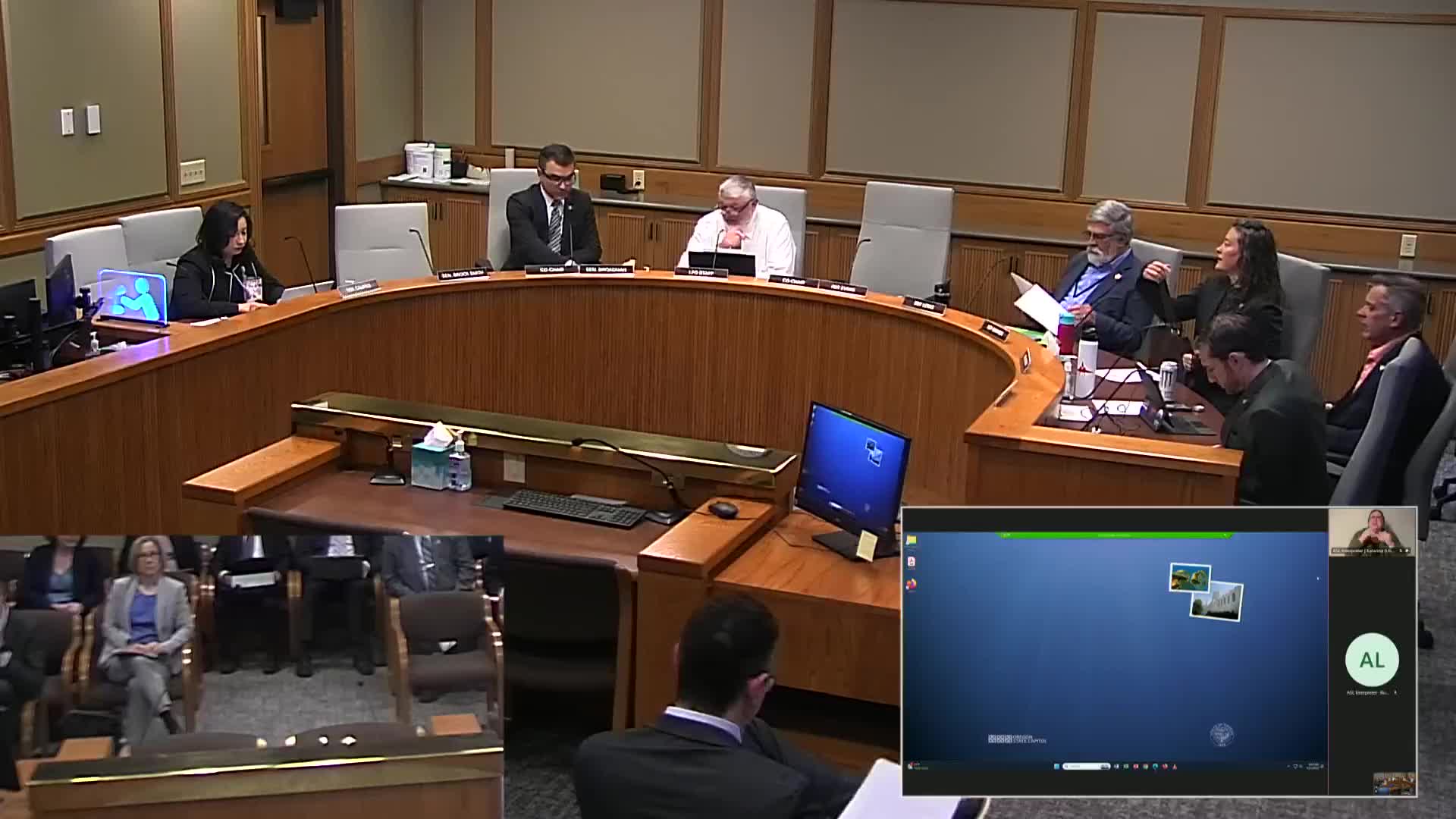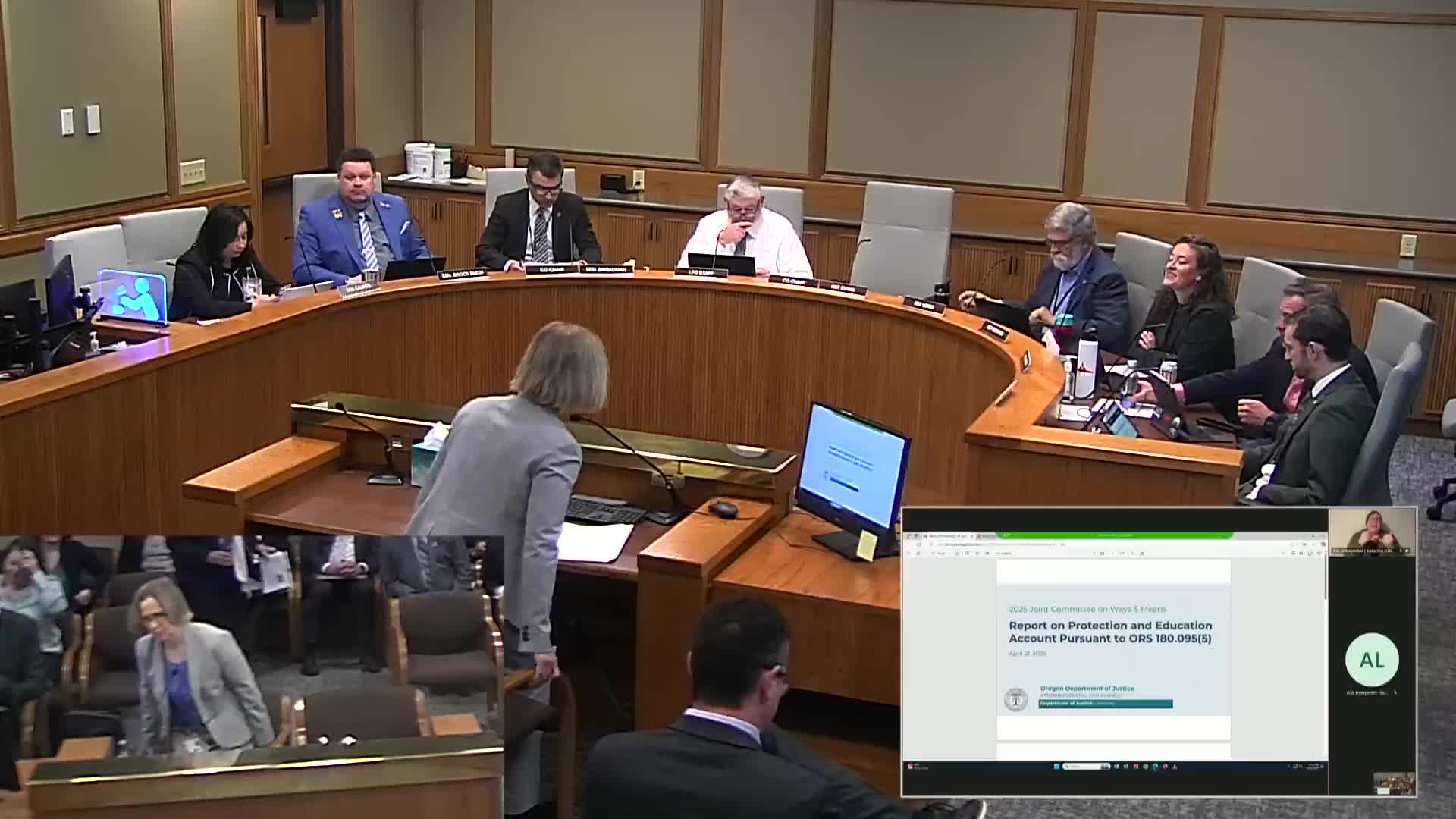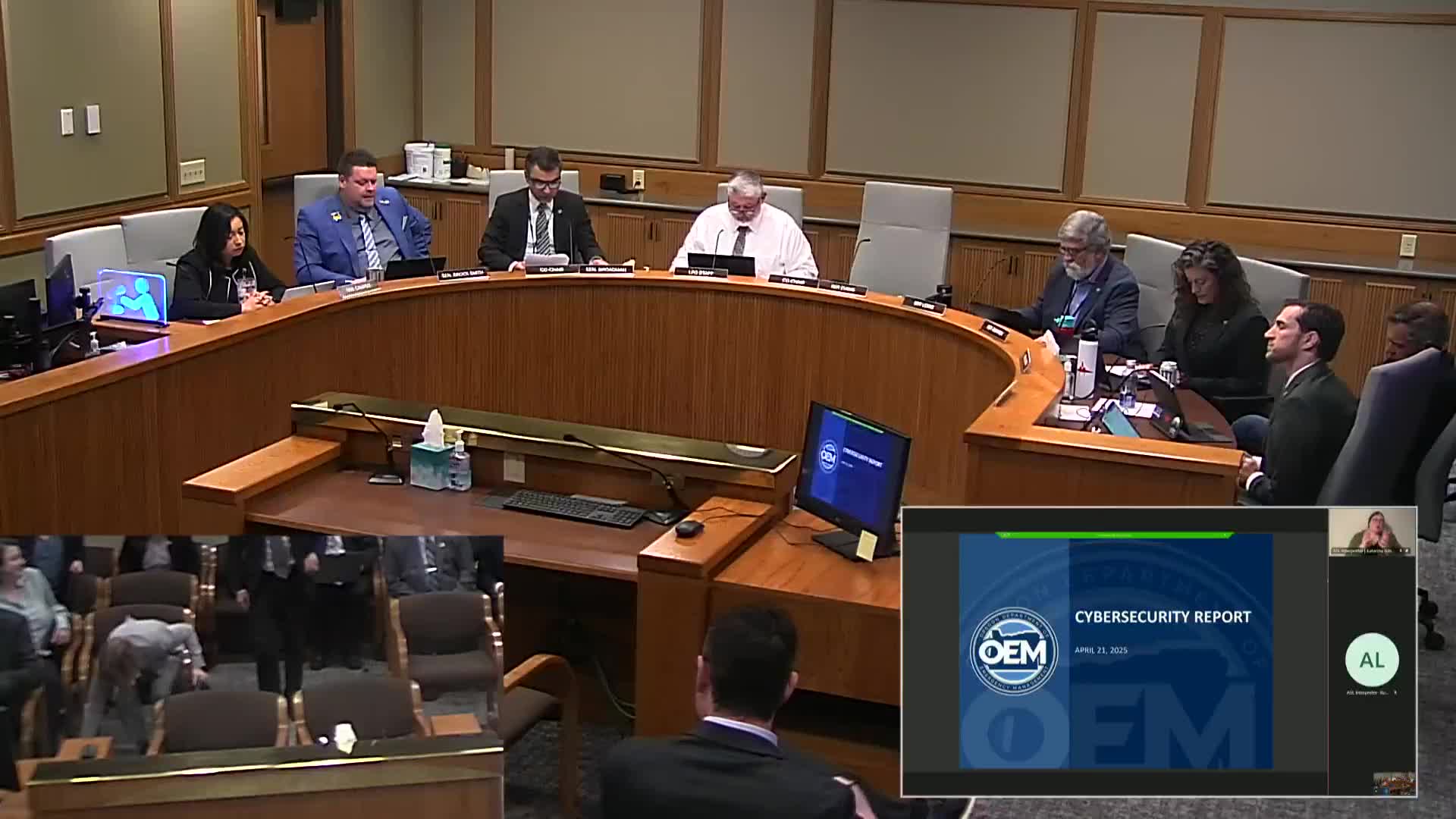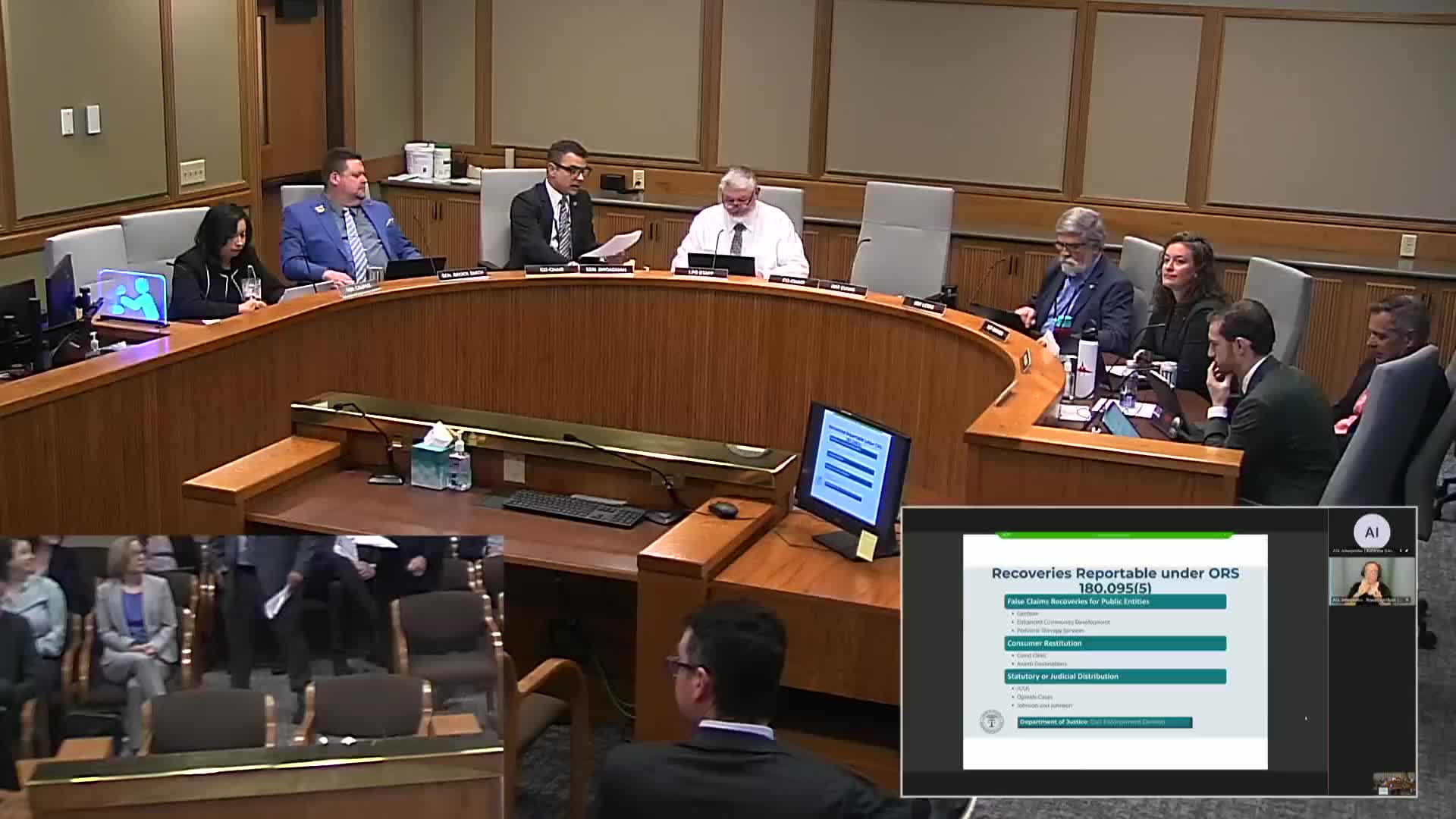Article not found
This article is no longer available. But don't worry—we've gathered other articles that discuss the same topic.

DOJ tells subcommittee non‑unanimous reconviction caseload remains elevated after Ramos and Watkins; report acknowledged

DOJ: Protection and Education account projects $47.3M balance; subcommittee acknowledges biennial report

OEM outlines statewide cybersecurity grant roles; FEMA approvals and cost‑share questions delay some allocations

